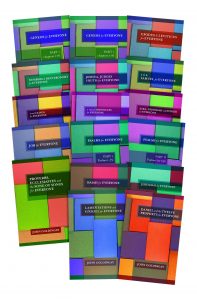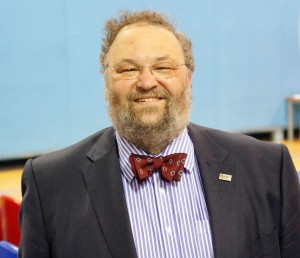John Goldingay’s The Old Testament for Everyone series

It is my custom to read the whole Bible every year in my daily Bible reading, and I try to ring the changes on the system I use to do that each year. Over the year recently ended (I am not good at beginning exactly on 1 January!) I was using a reading system set up by a particular organisation and I became irritated by the devotional comments provided with the readings—some were just plain wrong, and lots were at best poor exegesis of the text. So I decided (since this programme took me through the whole Old Testament spread over the days of the year) to use John Goldingay’s series of The Old Testament for Everyone books alongside my OT readings. This has been a very good experience, and this post is to reflect on what I’ve gained from the process.
First and foremost, I have appreciated Goldingay’s evident care in listening to the text and seeking to communicate its meaning accessibly to readers. His intended readership is not theologically-trained people like me, but more ‘normal’ Christian readers of Scripture, and Goldingay seeks to help such people hear what the text says and reflect on it. This means that his writing may raise eyebrows at some points, as he is clear that the OT says, for example, that God changes his mind in interaction with his people’s response to him. Similarly, Goldingay writes that some of the events portrayed as historical should not be taken ‘literally’, generally with very good reasons—for instance, he points to the presence of people of other nations and faiths as signs that the conquest of the promised land was not completed fully, and he explains why some of the numbers of people leaving Egypt are unlikely to be accurate by today’s standards. In each case, he reads the text carefully in engagement with ancient literary conventions and our knowledge of the ancient world.
Second, Goldingay’s personal openness is endearing and warms this reader’s heart. I should explain that John is a personal friend—we worked together for two years when he was Principal at St John’s College Nottingham and I was Tutor in New Testament there. The stories which open each discussion of a section of OT text are very often personal, relating to his experience of bereavement (his first wife Ann died during the writing of the series), a new marriage (he married Kathleen during the writing of the series too), and much else (such as necessary work on his home in Pasadena). He shares his own joys and struggles, and his personal engagement with God—and that’s always encouraging and helpful.
Third, I have learned a great deal—as one who is not an OT specialist—about particular features of the history and cultures of OT times. Goldingay’s ability to identify and explain relevant material which illuminates the text is peerless at this level of writing, in my opinion. And the fresh translation of the Hebrew or Aramaic text is fascinating, and kept provoking me to see the text from fresh angles. Goldingay translates more ‘woodenly’ than many English versions, and thus enables us to see more of how the original works and is shaped.
Fourth and finally (although I could go on!), I have been encouraged to reflect about how my own life with God should be shaped and ordered by learning from the characters, stories, images, ideas and themes of the OT. Goldingay offers us a reading of the OT with God at its heart, and that can only be helpful. It’s not very often that Goldingay steps back from the text and does direct ‘application’ of the text to today’s world—although when he does do it he does it with great effect (such as on the role of superpowers and their military might). These engagements between Scripture and today provide thoughtful and non-trivial models of how to bridge the divide between Scripture and today’s world.
In sum, I have valued these little books, and I shall return to them regularly when preaching—the seed thoughts in Goldingay’s studies will help me in preparing to speak, and the style will show me a splendid model for how to speak.
What has helped you in your daily Bible reading? Please respond in the comments!

Thanks Steve for your helpful review.
As I am about to repeat a teaching series entitled “Jewish roots of the Christian Faith” it’s good to have Goldingay’s commentaries as a recommended soruce for folk unfamiliar with the OT text and background., .